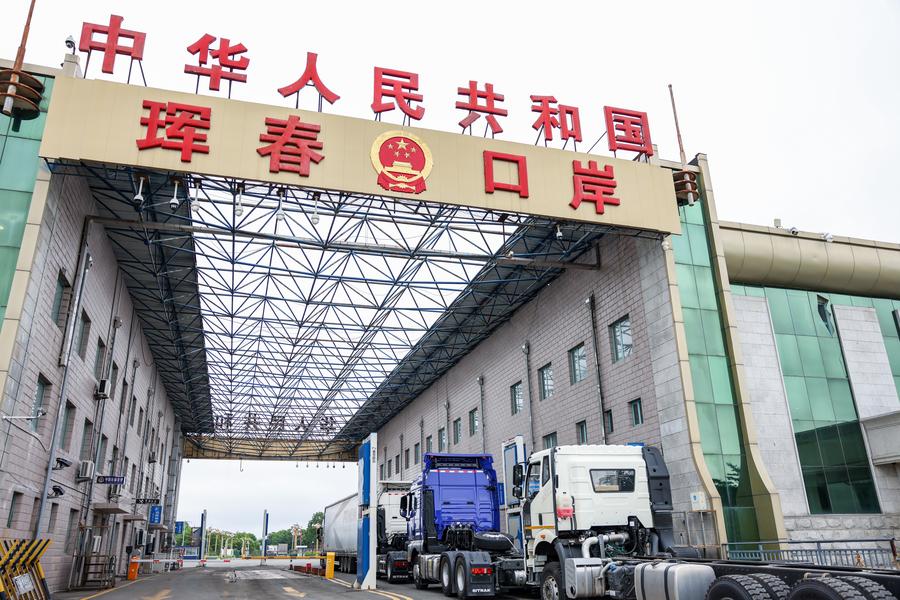
Trucks wait to pass the highway port in Hunchun City, northeast China's Jilin Province, June 26, 2023. (Xinhua/Yan Linyun)
CHANGCHUN, Feb. 6 (Xinhua) -- With Chinese New Year fast approaching, the seafood trade in the northeastern border city of Hunchun is booming, earning it the nickname "capital of king crabs" among netizens -- even though it's landlocked.
Before 2017, the city's seafood traders would route imports through ports in South Korea or Japan. But everything changed in 2017 with the opening of a new sea-land freight route that connected the inland city to Russia's Kamchatka Peninsula and Zarubino Port, drastically reduced the costs associated with importing seafood, making it a more viable and affordable option.
Every day, trucks fully loaded with fresh imports enter the city via a land checkpoint bordering Russia. Seafood shops flank the central business street in downtown Hunchun, northeast China's Jilin Province.
The Russian king crab, also known as the Kamchatka crab, is the star product.
"In addition to in-store purchases, the crabs are ordered via the shop's account on livestreaming platforms. We sell hundreds of crabs a day," said Wang Kaichao, a local seafood shop owner.
He said through railway or aviation logistics networks, wholesalers in Hunchun can promise a same-day delivery of the fresh crabs to buyers in Beijing, which is about 1,500 km away.
Photographs showing tourists holding a colossal king crab or savoring seafood has helped catapult Hunchun to online viral fame.
While promoting its new celebrity status as the "capital of king crabs," Hunchun has vigorously stimulated cross-border e-commerce and the seafood processing industry.
In 2023, the output value of the city's seafood processing industry surged by 20.4 percent year on year to reach 1.4 billion yuan (about 195 million U.S. dollars).
The city has planned to build a fresh seafood industrial park with its business radiation to the Northeast Asian countries. Once completed, it is expected to boast a temporary live-storage capacity of 500 tonnes of fresh products and a cold storage capacity up to 30,000 tonnes of seafood.
Zhu Xiaodan, the person in charge of the Yanbian Hasang Fishery Import & Export Co., Ltd., said the company's business has benefitted from the city's development of the seafood trade. The company needs to optimize its seafood logistic service to cope with the rising demand for the fresh seafood products across the country.